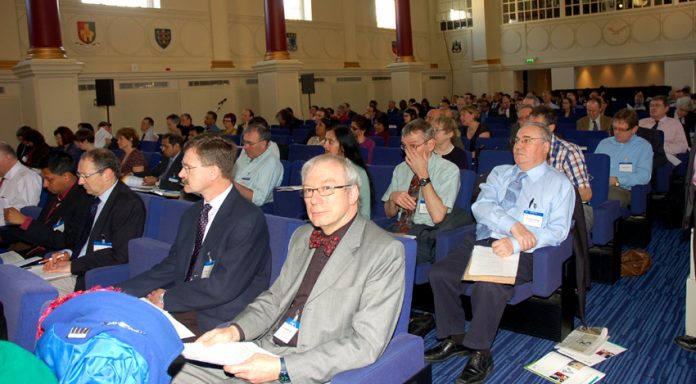
HOSPITAL doctors at the BMA Consultants Conference yesterday voted with just three against to ‘ballot the consultant membership regarding all forms of industrial action’ if the government moves to scrap their final salary pension scheme and replace it with a career average scheme.
Motion 41, from the Conference Agenda Committee, also ‘opposes any move to tax pension lump sums and a move to CPI rather than RPI for indexation’.
Mover, Dr Robin Arnold, said: ‘I want to be comfortable in those years when I can do nothing else.’
He added: ‘Let’s share what’s fair’, warning: ‘If lots of people leave (the pension scheme) that’s a real risk.’
He continued: ‘They say the final salary scheme obstructs any move to the private sector – that’s a political agenda.’
He added: ‘The move to CPI is a cynical way of saving money.’
He concluded: ‘Many colleagues have said “this is the one thing I would strike over’’.
‘We can’t send our leaders in without any back-up.’
Supporting the motion, Dr Ahmed Ali, said: ‘When I came to this country in 1980, I worked in a factory as a student.
‘When I got a job in the NHS, my salary dropped.
‘You sign the NHS contract on the understanding that your salary is less, but you get the final salary pension scheme.
‘We are paying for ourselves. Support the motion very strongly.’
Dr Jocelyn Wace said: ‘We need to make it quite clear that if the NHS pension scheme is looked at again, we are going to do something about it.’
Dr Andrew Rowland warned: ‘The impact on junior doctors will be disastrous.
‘It will be a kick in the teeth to those who work hard for the NHS.’
Dr Keith Brent told conference: ‘Other unions want to retain the scheme.
‘We need to stick together on this.
‘This is an attack on all NHS workers, not just consultants.’
He insisted: ‘NHS pensions are not gold-plated.’
He warned: ‘They are trying to get us into schemes that the private sector have – those schemes have failed, why should we be dragged down.’
Paul Flynn, deputy-chair of the Consultants Committee, recommended supporting all parts of the motion including the industrial action section.
Earlier, conference also voted almost unanimously for Motion 9 which ‘calls on the BMA to urgently explore what action might be taken, including industrial action should this be necessary and assuming that the lawful requirements have been met’, over proposals to attack doctors’ pay increments and pensions.
The conference voted unanimously for Motion 79 that reaffirms ‘opposition to the marketisation and privatisation of health care in the NHS’.
The motion deplored competition between hospitals and expressed concern ‘at the proposal of “any willing provider’’.’
The motion also rejected ‘the proposed role of Monitor to promote competition and prevent “anti-competitive’’ behaviour.’
Conference had opened with the chairman of the Consultants Committee Dr Mark Porter warning that the rationing of services, along with reforms that would see NHS hospitals in England lose work to competitors, would result in many trusts being ‘unable to cover the costs of entire departments.’
He said hospital services considered to be of low value by commissioners, for example cataract surgery, were already being stopped or rationed in some areas.
As well as this, the ‘Any Willing Provider’ policy would mean more services being transferred to the private sector, reducing funding for NHS hospitals, but leaving them with fixed costs.